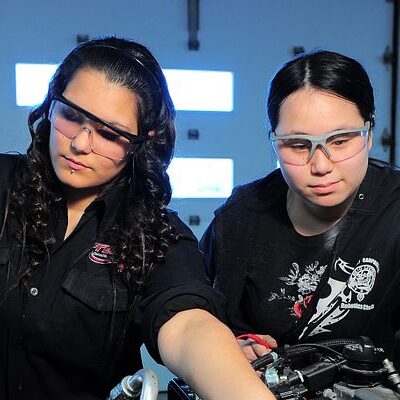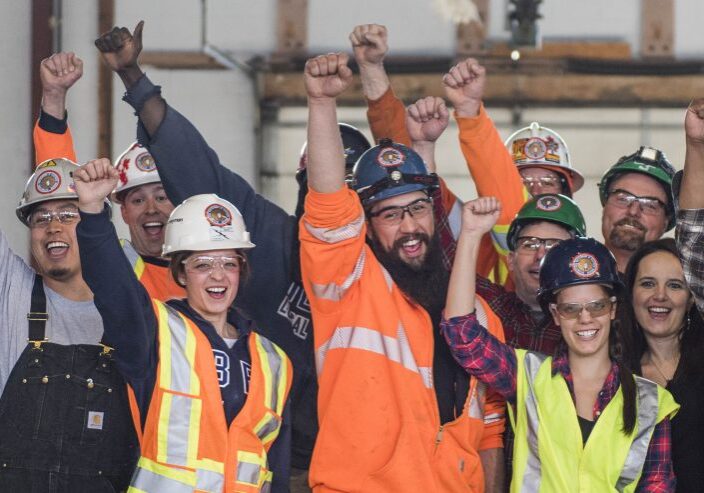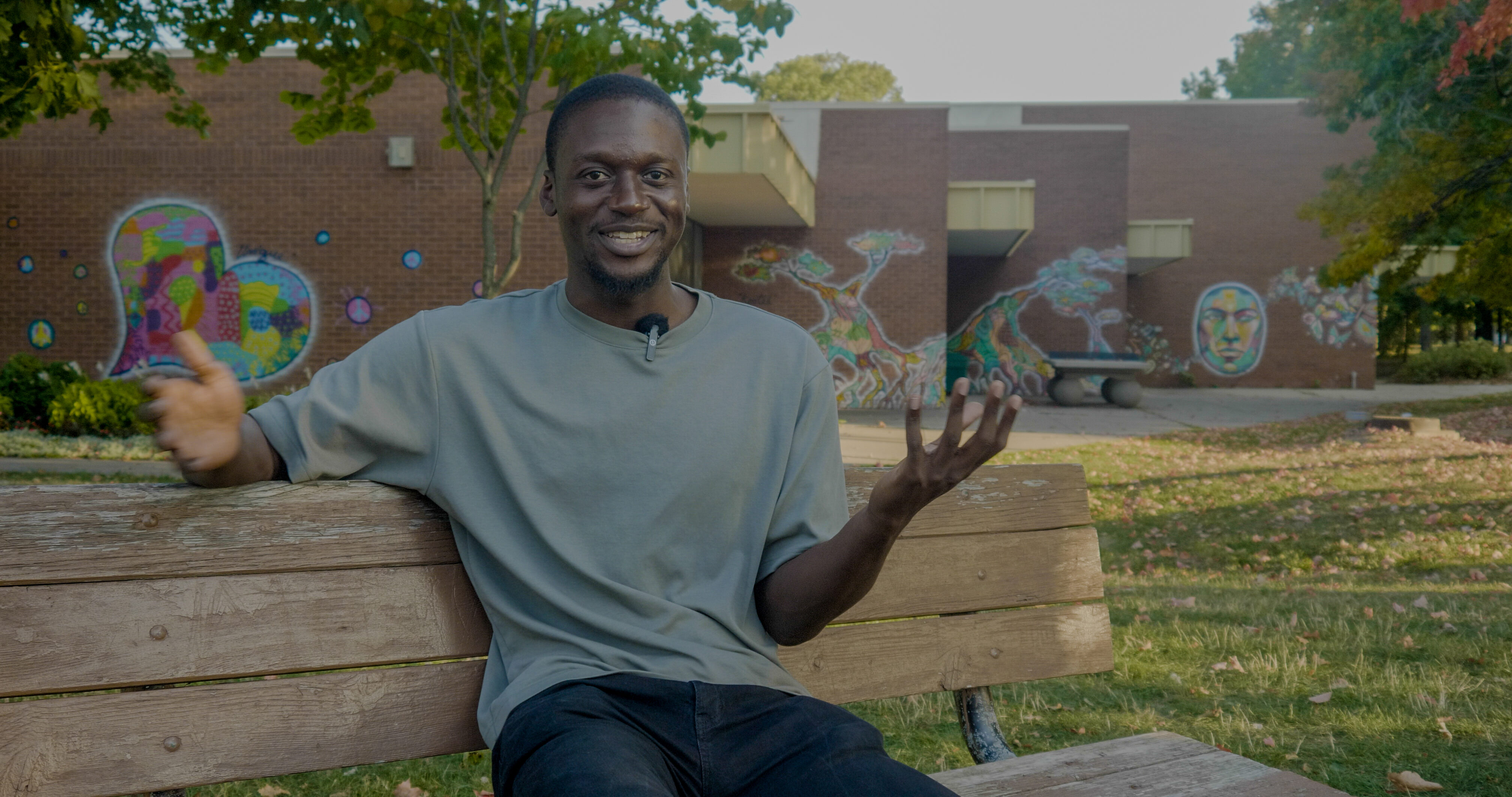THE GREEN LINE
ORIGINAL STORY
HOW WELL DO UNIONS AND COLLEGES SUPPORT GENDER-DIVERSE TRADE WORKERS IN TORONTO?
We sent questions to local unions and colleges to learn about the experiences of LGBTQIA2S+ trades workers experience at work and school, including their inclusion, funding opportunities and documented harrassment.

Students in a Centennial College apprenticeship program.


KAITLYN SMITH
Published author, national politics linguist and immigration reporter, and investigative data journalist living and reporting in Morningside, Treaty 13.
July 8, 2024
Union Responses
IBEW Local 353 was the only union to report any statistical data about underrepresented members in its union, with women representing less than 2 per cent of its members.
That's according to Tee Albino, an IBEW Local 353 human rights business representative and an executive board member for the Ontario Federation of Labour.
“Reports are infrequent due to fear of repercussions and retaliation within the construction industry,” Albino said in an email to The Green Line. “The prevailing culture often fosters an attitude of, ‘This is just the way it is; toughen up,’ discouraging individuals from speaking out about the discrimination and harassment they experience on worksites.”
The homophobia that’s regularly reported are inappropriate jokes or comments, harassment and intimidation, and even layoffs or gatekeeping work, they add. The lack of LGBTQIA2S+ trades workers in supervisory roles translates to a lack of job security, according to Albino, while discrimination and reprisal may be concealed under the guise of layoffs due to purported shortages of work. They say queer and racialized workers are often the first to be laid off.
“There's still much work to be done to increase representation of women and individuals from the 2SLGBTQIA+ community in these fields of work,” they admitted. “It's imperative to actively implement strategies and initiatives that not only attract but also support and retain individuals from underrepresented groups.”
They add that IBEW offers many funding solutions that are targeted towards Black, Indigenous and other racialized and gendered groups.

IBEW Local 353 members.

Local 27, a carpenter’s union in Toronto, reported similar discrimination against LGBTQIA2S+ members in hiring practices, unequal opportunities for professional development, limited access to mentorship programs, microaggressions, and lack of access to suitable childcare arrangements during appropriate hours of the construction industry. But it did not mention the outright aggression many of our sources reported.
“The lack of representation and inclusivity in leadership roles within the skilled trades industry contributes to a systemic challenge for queer and racialized members seeking career advancement,” Finn Johnson, United Brotherhood of Carpenters and Joiners of America communications director, said in an email to The Green Line in response to questions sent to its local Toronto chapter.
The union offers two-hour training modules, including Justice, Equity, Diversity and Inclusion (JEDI) training and a “Be More than a Bystander” module. It also conducts surveys on current policy, practices and cultural competency to understand underrepresented members’ needs, but didn’t say how frequently this is done.
Local 27 also didn’t provide the latest statistics on its women, racialized or LGBTQIA2S+ members. “We do not collect data on the percentage of our membership that are LGBTQIA2S+, women and/or gender-diverse,” the rep said.
None of the unions reported anti-harassment training specifically for supervisors.
The following Toronto-based unions did not respond to requests for comment: United Association (UA) Local 46, which has over 10,300 plumbers, steamfitters and welders; Labourers' International Union of North America (LiUNA) Local 506, which has over 8,000 members; LiUNA Local 183, the largest largest construction local union in North America with 60,000 skilled members; and Iron Workers Local 721, which has over 4,100 members.
"The lack of representation and inclusivity in leadership roles within the skilled trades industry contributes to a systemic challenge for queer and racialized members seeking career advancemen"
FINN JOHNSON
UNITED BROTHERHOOD OF CARPENTERS AND JOINERS OF AMERICA
Union Responses
We also spoke to colleges in Toronto that offer skilled-trades apprenticeship programs, including Humber College, which offers 35, and Centennial College, which offers 24.
While both colleges claimed that LGBTQIA2S+ inclusion is applied across all programs, only Centennial raised funding targeted towards these students, including over $100,000 in bursaries; it also requires students to complete a credit course on social justice issues.
Humber said it offers support to students who report concerns about their employers under the umbrella of apprenticeship programs.
“Our support team member will liaise with the employer to ensure resolution,” the college said in an email to The Green Line. “If issues persist, we collaborate with the student to find a new employer.”
Concerning shop teachers and trades educators, the college continued, “All Humber staff are required to undergo EDI training, emphasizing health and safety considerations for all programs.”
Centennial did not share any information on staff-specific equity, diversity and inclusion, or conflict-resolution training.
Fact-Check Yourself
Sources and
further reading
Don't take our word for it —
check our sources for yourself.
